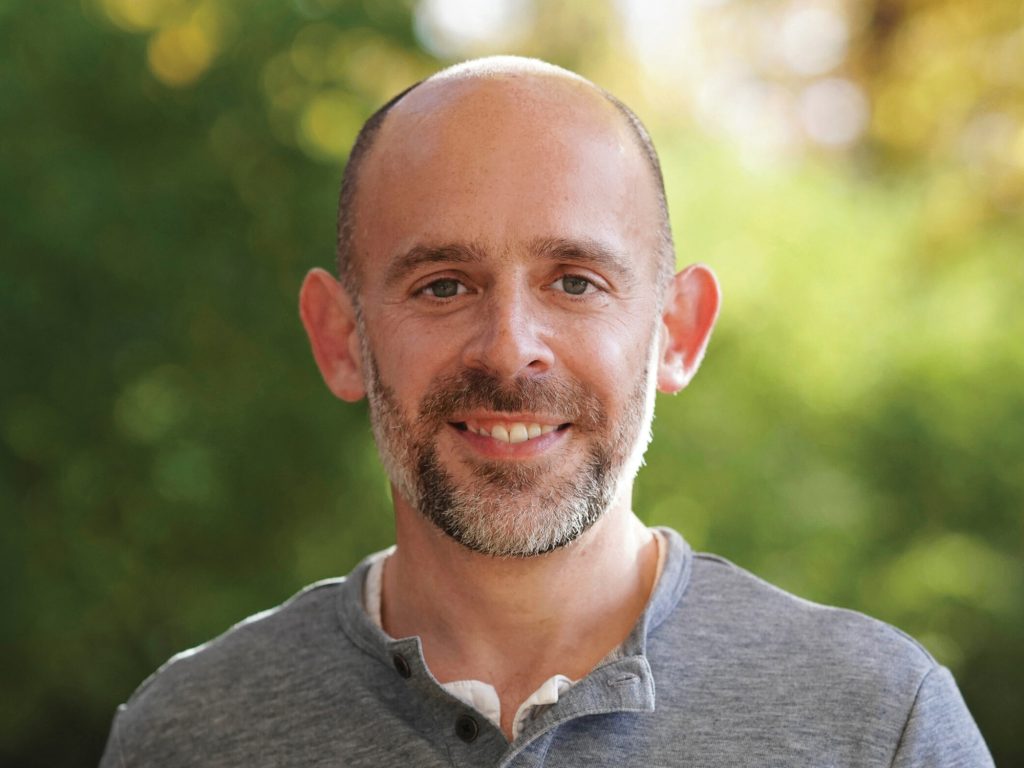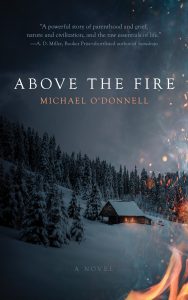It is doubtful that anyone will ever accuse Michael J. O’Donnell ’04 of being idle. That’s because he rarely stops moving—either in his professional life or in his leisure pursuits. In the twenty years since his graduation, magna cum laude, as a member of The Order of the Coif, as Editor-in-Chief of Boston College Third World Law Journal, and as a recipient of the University Leadership Award, he has built a Chicago-based career as a lawyer, mostly in public service, and as a freelance writer who has contributed scores of essays, articles, and book reviews to nationally known publications that include The New York Times, The Wall Street Journal, The Economist, and The Atlantic.
Even in his down time, O’Donnell remains on the go—as a serious hiker, a pastime he began as a Boston College Law student when friends took him on his first major outing in New Hampshire’s White Mountains. “I was a midwestern kid, used to flat cornfields,” he says, adding that the majestic New England peaks made a lasting impression.
Today, although he has undertaken treks in Sweden and Iceland and now hikes mostly in the western United States, especially in Colorado, O’Donnell has returned to the New Hampshire mountains for inspiration for his most recent credit: author of the new novel from Blackstone Publishing, Above the Fire.
It’s the story of how the bond between a widowed father and his young son develops when their backpacking trip in the White Mountains goes awry and they must survive a brutal winter alone in the wilderness after conflict breaks out between an unnamed enemy and the United States, cutting off virtually all communication with the outside world.
The seed of the novel’s plot “comes directly from my own life,” O’Donnell says. “It started over the pandemic summer, in 2020.” His wife, Mary, had taken a demanding new job, and the absence of the usual options for childcare, entertainment, and other enrichment resulted in O’Donnell spending hours alone with their then-seven-year-old son James, riding bicycles, playing on empty high school campuses, and hiking.
“I felt the sudden intensity of being a parent with a young person all the time with limited access to friends,” O’Donnell recalls. “I began to think: This is a new experience, and it’s very intense, and I’ll never forget that experience with my boy.”
He began to consider how to express all the emotions he felt. Although O’Donnell had significant experience as a writer, his previous attempts to produce a novel had gone nowhere. This time was different, however. The hours spent alone with his son against the backdrop of the COVID-19 pandemic led him to believe he had a story that needed to be told.
“I felt the sudden intensity of being a parent with a young person all the time with limited access to friends. I began to think: This is a new experience, and it’s very intense, and I’ll never forget that experience with my boy.”
Michael J. O’Donnell ’04
“I didn’t want to write a COVID novel—all masks and vaccines and germs all the time—and I wanted to find a way to express that experience through a different setting. What if,” he says, “a father and son like me and James were in the White Mountains and had to fend for themselves at a time like this, or another stressful time or time of exigency in the country?”
The plot began to gel as O’Donnell thought about how medical emergencies, personal safety, or education would be handled under stress and in isolation. Then, he announced to his wife, “I’m going to write this book.”
The undertaking required discipline, especially because he also had a full-time job. O’Donnell says his technique was to “sit down and pound out the words. I gave myself a daily word count—modest, 500, 700 words a day. It adds up, and it amounts to something.” The result was Above the Fire, which one reviewer has described as a “meditation on fatherhood, love, resilience, and loss.”
In spite of his new accomplishment as a novelist, O’Donnell remains a busy lawyer in the Office for Civil Rights of the United States Department of Education in Chicago, where he has worked since 2010.
He says it’s the kind of law he knew he wanted to practice from the beginning, inspired by the example of his maternal grandfather, a lawyer who valued public service. And, like O’Donnell, who studied music as an undergraduate at Indiana University before switching to American History, his grandfather had also pursued wide-ranging interests, including music, government, and history.
Now, with the publication of O’Donnell’s novel and a legal career he enjoys, only one thing can be said for what he chooses to do next: He won’t be standing still.



